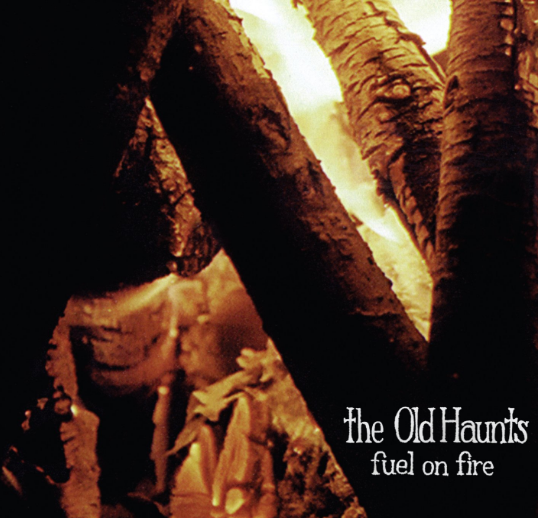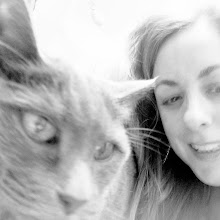 Here are the reviews I'm
Here are the reviews I'mworking on for this month.
Amazon: Remington Steele - The Complete Third Season [four-disc set] (my second Steele review), Forty Shades of Blue (Sundance Grand Jury Prize winner with Rip Torn), The Syrian Bride (with Hiam Abbass of Satin Rouge), Full House - The Complete Third Season [four-disc set] (yes, I also reviewed season one), Dr. Dolittle 3, Green Street Hooligans, My Family and Other Animals, Mates of State - Bring It Back, Gomez - How We Operate (loved their last CD, which I reviewed for Tablet), Jewel - Goodbye Alice in Wonderland (my Mom's met her Mom--hey, it's an Alaska thing), Sonya Kitchell - Words Came Back to Me, One Last Thing (with Sex and the City's Cynthia Nixon), and Austin City Limits - 2005 Music Festival [two-disc set].
 Resonance: The Old Haunts - Fuel on Fire. I previously reviewed the fine sophomore outing from this Olympia threesome here.
Resonance: The Old Haunts - Fuel on Fire. I previously reviewed the fine sophomore outing from this Olympia threesome here.THE OLD HAUNTS
Fuel for Fire
(Kill Rock Stars) Like Jeffrey Lee Pierce and Jack White, Craig Extine has one of those intense, yet reedy voices that rubs some listeners raw - while forcing followers of the aforementioned to crank it up. On their second full-length, the Olympia trio adds a bushel of blues to their rock recipe, resulting in a recording that sounds as if it emerged from the Bayou, even if the recording took place in Seattle (and improves on their murky debut). On the first few tracks, the three-piece comes on like a Creedence-damaged garage group. Then they throw a piano ("Wasted Day") and even a ballad ("Unveil the Key") into the mix. Okay, "ballad" may be a stretch, but on the quieter numbers, the Old Haunts prove they can slow down the pace without watering down their jalapeño hot flavor. KATHLEEN C. FENNESSY
Seattle Sound: Laguna! - Outside Casa (second CD from this local trio) and Juana Molina - Son (fantastic fourth release from this Argentinean superhero: singer/songwriter, multi-instrumentalist, producer, and popular comedienne). These reviews were cut from the May issue, but they'll appear in June when Seattle Sound goes monthly.
JUANA MOLINA
Son (Domino) Like Seattle's Rosie Thomas, Juana Molina plies two trades: comedienne and musician. Not at the same time, naturally. On her fourth full-length and second domestic release, the Buenos Aires-based polymath, best known to South Americans as the star of Juana and Her Sisters, comes on playful and pretty, rather than comic or crude. With a clear and gentle voice that evokes Astrud Gilberto and Stereolab's Laetitia Sadier - she lived in France as a child - Molina whisper-sings atop woozy keyboards, exotic sound effects (bird calls, radio static), subtle percussive elements (cymbals, gongs), and airy acoustic guitar (delicately finger-picked in the Nick Drake style). The singer/songwriter, who recently returned to Argentina after a sojourn in LA, speaks a universal language. On the self-produced follow-up to Segundo, she splits her breezy vocals between Spanish phrases and wordless utterings. Rather than Ella Fitzgerald-type scatting, Molina employs multi-tracked "ahs," "oohs” - even a whistle or two. Spanish for "they are," Son is the answer to the musical question: Are Juana Molina's new songs as beautiful as before? KATHLEEN C. FENNESSY
Outside Casa
(Laguna! Music Ltd.) No jarring juxtapositions or abrasive passages here. Laguna!'s sophomore full-length plays like a smooth ride in a nice car with an agreeable companion. For those who prefer a few bumps along the road, the local trio's polished presentation of electro-pop is sure to seem too safe. For followers of jazz-oriented "girl" bands, like Everything but the Girl and the Brazilian Girls, however, it's just what the kindly doctor in the clean office ordered. Whenever danger and risk seem overrated, Lydia (vocals), Keane (bass), and founder Shane (drums, programming) will be waiting with welcoming arms. Everything is going to be okay. KATHLEEN C. FENNESSY
Seattle Film Blog: Phantom India Louis Malle's French doc series from 1969), Protocols of Zion (controversial doc from Slam's Marc Levin), Innocence (acclaimed first feature from Lucile Hadzihalilovic, Gaspar Noé's former editor), Mouchette, Woman Is the Future of Man (from South Korea's Hong Sangsoo), and The Intruder, the latest masterwork of mystification from Claire Denis.
Incidentally, while watching Paris, Texas recently, I was reminded that Denis and her trusty cinematographer, Agnès Godard--along with Allison Anders--served as assistants on that famous film.
Endnote: My 50th post! The Intruder images
from Senses of Cinema and The Village Voice.




